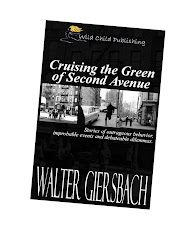The Oops Factor, or, You Mean I Have to Proofread?
The information technology industry has long been aware of the GIGO factor of input/output: “Garbage In, Garbage Out.” It’s unfortunate that writers usually aren’t their own best editors. POD sadly allows them to escape a strong editorial hand. The result is manuscripts full of factual errors, ungrammatical parsing, spelling errors, and clichéd phrasing.
This is the Devil’s Pact. The writer trades off the benefits of distribution and royalties accruing from POD but forgoes professional guidance. Self-publishing is very much like an indicted person serving as his own lawyer: he has a fool for a client and a fool for a lawyer.
Pundits compare Congressional legislation to sausages: you don’t really want to know what goes into the result. “Vanity press” publishing is also like a sausage full of strange ingredients. A friend, unfortunately, has had her POD book shelved at the area library, and the patrons have taken to marking up the copy for its egregious errors.
At least, Xlibris and Lulu offer some editorial guidance to the neophyte. For a price.
Where Is Publishing Headed?
There was a 6-column-inch blurb in The New York Times noting that Seattle-based Amazon on Christmas Day 2009 sold more e-books for its Kindle reader than it did paper-based books. (In July 2010, Amazon sold 143 digital books for its Kindle for every 100 hard cover books.)
Interesting factoids, but more startling was the next sentence that Laredo, Texas (pop. 250,000) closed its last bookstore. (Laredo's population is only slightly smaller than that of Newark, NJ, one of the poorer urban areas.) I checked my online Yellow Pages, though, and actually came up with eight Laredo bookstores, three of which were Christian and one Spanish-language. Two recognizable names were Barnes & Noble and B. Dalton. That left two that appeared to be independent bookstores.
What's the takeaway? Actually, I came up with five.
One, a lot of people got Kindles for Christmas. (My Seattle-based friend has 4,600 books on his e-reader, most which he admits he'll never read.)
Two, Texans read less than Newarkers, where there are 84 listings for bookstores. Newark's median household income is $26,913. Laredo's median HH income is $23,832, but the area has a lower cost of living index.
Three, there's a sea change coming in the way — and whether — we read books. (Does Steve Jobs know something about e-books that led to the iPad?)
Four, Laredo's population is 97.1% Latino, but unemployment is just 6%. Are Hispanics working too hard to read?
Finally, bookstores are an endangered enterprise, even big box outlets like Borders and BN that are flirting with bankruptcy.
In other words, publishing’s dead; long live the new paradigm.”
Monday, May 30, 2011
Subscribe to:
Post Comments (Atom)


No comments:
Post a Comment